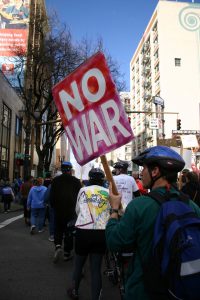Recently, presumptive Democratic presidential candidate Joe Biden unveiled a broad plan to confront systemic racism and promote racial equity. The former vice president’s Racial Equity Plan is part of a larger Build Back Better economic proposal. This newest element – support of the BE HEARD Act – addresses workplace inequalities that are known to disproportionately impact minorities.
BE HEARD (Bringing an End to Harassment by Enhancing Accountability and Rejecting Discrimination in the Workplace), or H.R. 2148 has drawn praise from social justice advocates – yet earned the sharp ire of corporate interest groups. Essentially, it would (among other things) prohibit workplace harassment and discrimination under federal law – regardless of how many employees a company has – and require harassment training. It would further seek to address sexual harassment of tipped employees (a well-established problem) by requiring the cash wages paid to these workers be steadily increased until they meet the minimum wage for other workers.
As staunch regulatory critic Hans Bader wrote in the National Review, “(Under this plan), even the tiniest of employers would be saddled with unlimited legal liability for discrimination or harassment committed by an employee.” He added the law would alter the definition of sexual harassment in a way that would make small businesses vulnerable to liability for “trivial actions of their workers.”
As a longtime Los Angeles employment lawyer experienced in handling cases of racial discrimination and sexual harassment, I would note first that it’s a misconception that California employment lawsuits are or have ever been easy to win. Part of what this new law would do is establish a new liability standard for workplace harassment that “fulfills the Congressional intent” (as meticulously laid out in prior legislative action and case law) of providing broad protection from workplace discrimination on the basis of race, color, religion, sex (including sexual orientation, gender identity, pregnancy, childbirth, a medical condition related to pregnancy or childbirth and sex stereotype), national origin, age, disability, genetic information and uniformed service status. Note the recognition of sexual orientation and gender identity – statuses that have protection in California, but not nationally. Continue Reading ›
 Orange County Employment Lawyers Blog
Orange County Employment Lawyers Blog










